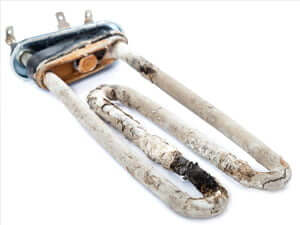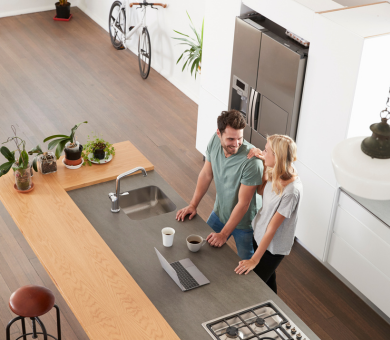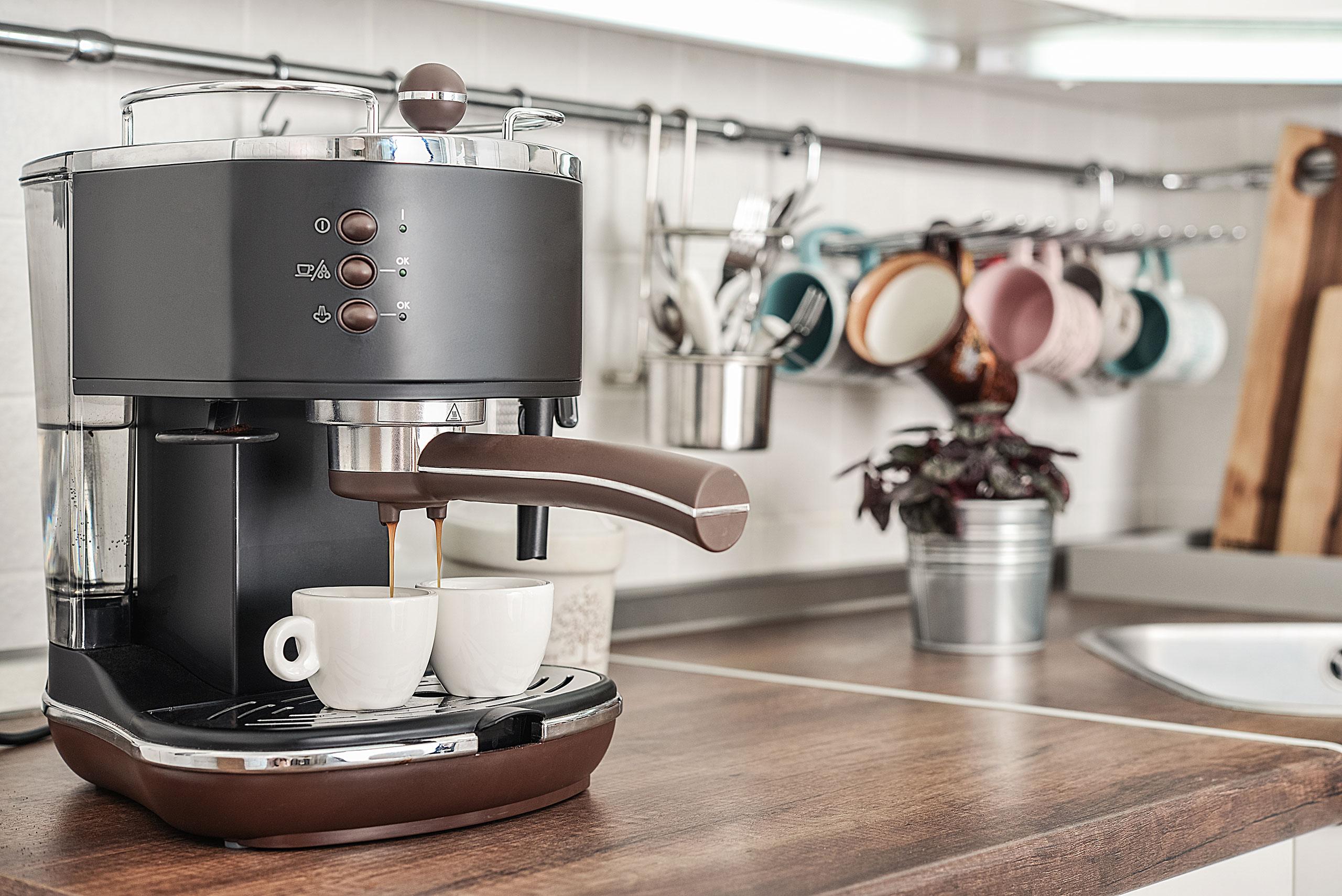
Open your kettle and take a look inside – if you see a chalky, white film clinging to the bottom, that is a build up of limescale which is often found in hard water areas. While many people don’t notice the effects of hard water in their day-to-day lives, it may end up costing your household a lot of money in damage repairs and replacements of appliances and heating system. Hard water and limescale can damage your appliances – continue reading to find out more…
If you live in a hard water area, you may find that you have to replace your appliances more often than those in a soft water area. Hard water has a high content of minerals such as calcium and magnesium, when water isn’t present inside your appliances, these minerals group together and solidify, creating limescale.
Limescale clumps together over time and creates a thick coating that sticks to the inside of your appliances and your pipes. A four person household can create up to 70 kg of limescale in a year just by using water. This large amount of scale easily clogs up high usage appliances like kettles, washing machines and dishwashers, making them less energy efficient and potentially causing damage the workings.
Limescale pushes up your heating bills
In the same way limescale clings to your appliances, it also clogs the heating elements of your boiler and pipes. Limescale in your boiler is one of the main reasons you will see an increase in your heating bills. Just 1/16 of an inch of scale around your boiler’s heating elements can raise your fuel costs by up to 15%.
Older boilers particularly suffer from limescale build up. If you live in a hard water area and you’ve had your boiler for 10 years or more, you may begin to hear a rumbling sound as your boiler starts up. This is called kettling and it’s caused when the scale deposits start to affect the water flow within your heat exchanger. As water becomes restricted, it gets trapped and begins to overheat which creates steam.
Kettling makes boilers less efficient as they have to work harder, putting strain on important internal components. Boilers that suffer from kettling have a reduced lifespan and are prone to breakdowns and damage in colder months.
You use more energy with hard water
Carbon emissions are becoming an increasingly important aspect of our lives in the search for new, environmentally friendly technology. The limescale caused by hard water conducts thermal heat approximately 400 times less efficiently than copper, making it a significant barrier to heat flow within the home
A water softener could help reduce household costs
Using a water softener removes the minerals that harden the water in your area. Softened water dissolves limescale build up and prevents from recurring in future and removing scale from your heating system can reduce the amount of energy used to heat your hot water.
The Battelle Study noted that after 15 years heaters running on soft water maintained an efficiency close to the level they demonstrated when new. In contrast heaters running on hard water ran into problems with scaling that reduced their efficiency, in some cases by almost half. A further study found that energy usage with softened water was 23.8% lower for gas heaters and 17.8% lower for electric heaters. The barrier of lime scale does not have to be large to have a significant effect on fuel costs. In separate studies it has been discovered that a mere 0.5 mm to 0.8 mm of lime scale can increase fuel costs by 9 to 10%.
Tests carried out at a UK Government recognised laboratory confirmed that the steady state improvement was 5.6%. This means that a typical family of four spending £250 a year on heating hot water in the UK will save around £30 per year by using softened water.
Cleaning products also work more effectively in soft water, meaning you can use less and gain more. Particularly, clothes detergents can be reduced by 75% and still remove stains better than with hard water.
If you have hard water in your home, it could affect the lifetime of your household appliances due to a build-up of limescale over time. Water softeners remove minerals from your water supply and drastically reduce the amount of limescale in your home.


